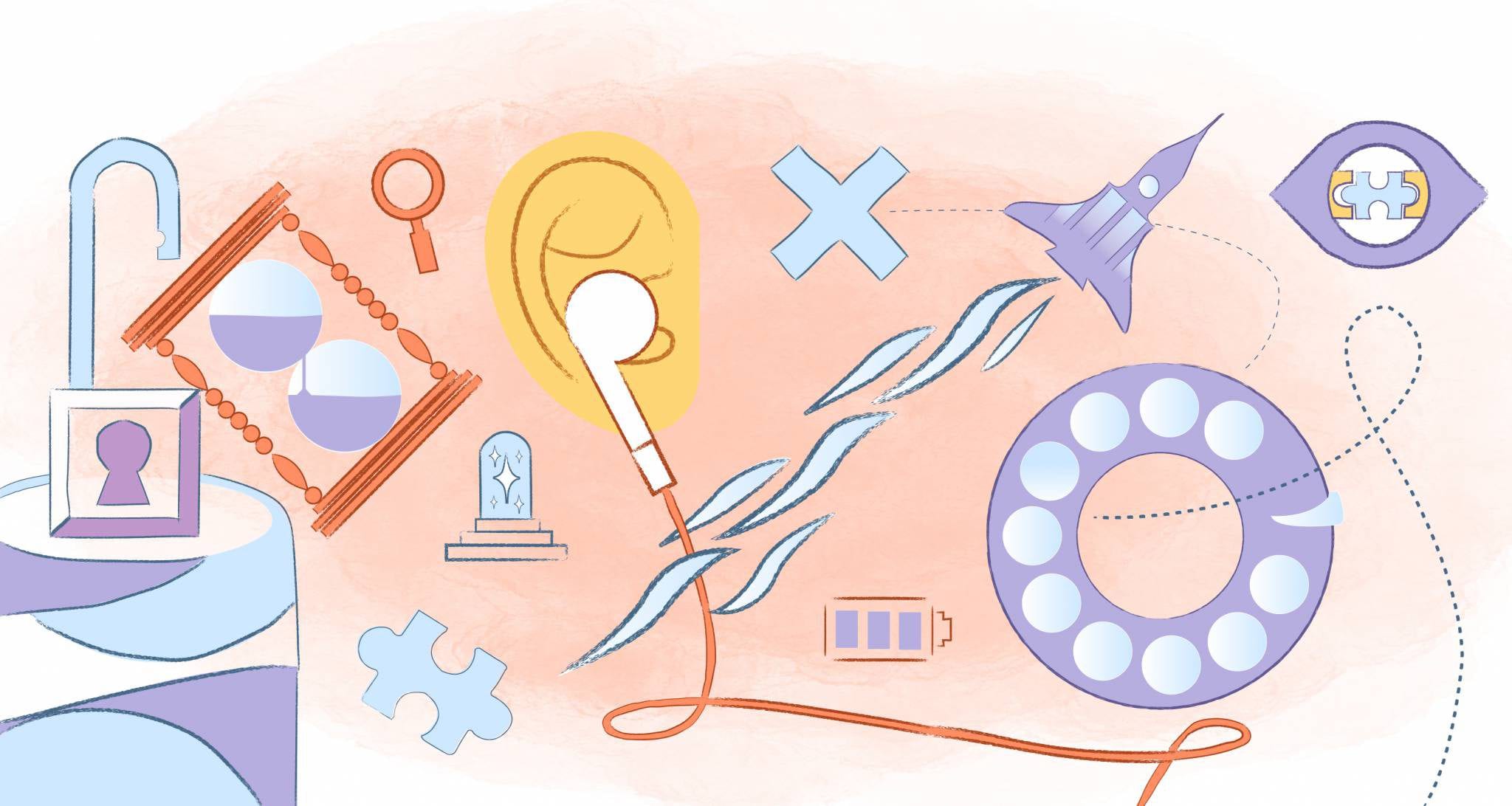

It’s not just your imagination or hyperbole. Stress in the workplace is a reality. With so many tasks to complete and deadlines looming, it’s easy to see why people feel overwhelmed. In fact, 83% of U.S. workers report that they suffer from work-related stress every day. As a result, workplace stress and poor mental health can negatively affect workers;
- Decreased productivity
- Performance at work
- Lower-quality of work
- Communicating and engaging at work
- Ability to perform daily tasks and physical capabilities
- Demotivation
Although pressure can cause anxiety and stress, it can also bring out one’s best qualities if it is managed effectively. This article explores 17 tips to improve your performance under pressure and help you use tense situations to your benefit.
1. Develop a positive mindset.
Cultivating a positive mindset is a good first step in working better under pressure. You can reduce the emotional toll when you view stressful situations and high expectations as opportunities to showcase your skills.
Start by training your mind to perceive pressure as a challenge rather than a threat. Also, consider how to use your previous success in high-pressure situations to your advantage.
You can improve your outlook by reframing your perspective and boosting your confidence with positive affirmations and visualization techniques.
2. Prepare for peak workloads in advance.
Identifying your “crunch times” can help you navigate stressful periods more effectively. These are generally times when work is intense and overwhelming. Examples include shipping a product, releasing software, or delivering work to a client. It’s an all-hands-on-deck phase, where everyone works together to finish the work by the deadline.
The following are proactive strategies:
- Delegate tasks. You may want to consider outsourcing tasks before a crunch time arrives.
- Trial and error. Expect to experiment a bit to find the best approach that aligns with your needs and goals.
Overall, if you anticipate and plan for peak workloads, you can optimize your workflow and reduce stress.
3. Prioritize and plan ahead.
In high-pressure situations, you must distinguish between what needs immediate attention and what can wait. As a starting point, sort tasks based on urgency and importance, then list them out. Using the Eisenhower Matrix, you can categorize tasks into four quadrants based on their importance to prioritize effectively.
- Urgent and important
- Important but not urgent
- Urgent but not important
- Neither urgent nor important)—can help you prioritize effectively.
4. Practice developing resilience.
Resilience is the key to handling pressure well. When you build resilience, you learn how to recover from setbacks quickly. You can strengthen this trait by challenging yourself to do something new or speaking publicly whenever possible. As a result, you’ll be able to handle stress when stakes are high and develop a pressure tolerance.
Furthermore, learn to view failures as learning opportunities instead of personal failures. As you expose yourself to more high-stakes scenarios, you gain more experience handling pressure.
5. Learn the art of time management.
By effectively managing your time, you can significantly reduce the stress often accompanied by pressure. Here are some strategies to get you started;
- Analyzing how you spend your time currently and identifying any inefficiencies.
- Consider productivity techniques such as the Pomodoro Technique, which involves working 25 minutes and taking a 5-minute break between tasks.
- Using time-blocking, you can allocate specific periods to each task. As a result, every minute will be used wisely, alleviating the pressure to cram in work at the last minute.
- Stick to a structured routine and prioritize tasks using tools like to-do lists, project management apps, or planners.
6. Face your fears by imagining the worst-case scenario.
Our anxieties are often rooted in the uncertainty of the future. But what could really go wrong if things don’t go according to plan? Can it be as catastrophic as you perceive it to be?
Focusing on your goals and managing your stress can be easier when you create a strategy to deal with setbacks. Keeping a balanced perspective can also significantly alleviate stress.
7. Organize your thoughts to reduce mental clutter.
When working under pressure, a cluttered workspace or disorganized digital files can make things worse. However, you are more likely to feel in control of your digital and physical environments if you keep them both organized. As such, be sure to label your files clearly, declutter your workspace regularly, and maintain an orderly computer file system.
If you’re under pressure, having instant access to information or resources can save you time and energy.
8. Create micro-goals for each task.
When you work under tight deadlines, large projects can seem insurmountable. To combat this, break your work into smaller, more manageable objectives called micro-goals. Instead of attempting to complete a 20-page report, think about finishing the outline first and tackling each section individually.
You feel more accomplished as you achieve each micro-goal, motivating you to keep going.
9. Practice deep breathing and mindfulness to stay calm.
As anxiety mounts, physiological responses such as rapid heartbeats, shallow breathing, and muscle tension can escalate. You can stay grounded and focused by practicing deep breathing exercises and mindfulness techniques. When we breathe deeply, we activate the parasympathetic nervous system, which promotes a state of calm.
You can try the 4-7-8 breathing technique by inhaling for 4 seconds, holding your breath for 7 seconds, and then exhaling for 8 seconds. Mindfulness can also help you regain control over your emotions and thoughts.
10. Learn to communicate effectively under pressure.
Communication breakdowns can result in misunderstandings, mistakes, and additional stress when working under pressure. As such, you should strive to communicate clearly, concisely, and assertively. Also, whenever you feel overwhelmed, ask for help or delegate.
You will ensure everyone is on the same page by checking in regularly or submitting status updates. It is important to be proactive about communicating your needs and expectations to ensure seamless collaboration.
11. Establish a strong support system.
A strong support system can make all the difference in high-pressure situations. So, consider surrounding yourself with colleagues, mentors, or friends who can offer advice, encouragement, or just a listening ear.
Talking to someone can reduce stress and give you new perspectives on how to handle challenging situations. A mentor can be particularly helpful in a professional context, as they can offer guidance about how to manage similar situations.
12. Maintain a healthy physical and mental state.
A person’s ability to handle pressure is largely influenced by their physical fitness and mental well-being. After all, keeping yourself active, eating a balanced diet, and sleeping enough enhance your energy, focus, and resilience. While on lunch break, for example, incorporate activities that help you manage stress, such as yoga, meditation, or even a simple walk.
Similarly, positive self-talk, engaging in hobbies, and relaxing are important for maintaining good mental health. A healthy body and mind can thrive and endure in a high-pressure environment.
13. Visualize success.
Among top athletes and professionals, visualization is an effective tool for preparing for high-stakes situations. By mentally rehearsing your actions, you can reduce anxiety and build confidence. If you are doing a big presentation or project, spend a few minutes envisioning yourself completing it successfully. How would you feel, how would others react, and how would you overcome challenges?
Also, visualization boosts your confidence and helps you anticipate problems.
14. Don’t worry about what you can’t control.
We are often under pressure due to factors beyond our control. So, don’t focus on things you cannot change but on things you can influence. Think about the variables within your control, such as your attitude, work quality, and response.
Focusing on these aspects can help you regain a sense of agency and reduce the feeling of helplessness that often accompanies high-pressure scenarios.
15. Reframe challenges.
Our worries can be magnified in high-stress situations. Instead of viewing a deadline as the end of your career, view it as a chance to showcase your skills. Even though some situations are life-or-death, many daily stressors don’t carry as much weight.
Reframing challenges as opportunities for growth or as puzzles to solve can relieve pressure and improve performance. When you are fearful or anxious, tasks may appear more daunting and hinder your abilities. Adopting a positive outlook gives you more energy and better equips you to deal with challenges.
16. Use breaks to your advantage.
Short breaks are crucial for maintaining mental clarity and productivity when working intensely. While some might believe pushing through without a break will result in burnout, it can actually lead to decreased performance. Take a short walk or stretch away from your desk for a brief mental reset. By doing so, you not only prevent mental fatigue but also bring renewed energy and focus to your work.
17. Gain experience in high-pressure situations.
Last but not least, learn and grow from every high-pressure situation. Once the pressure has subsided, reflect on what went well and what could have been improved. Were you able to handle the situation effectively? Is there a strategy that worked, and a plan that didn’t?
By periodically analyzing your performance under pressure, you can fine-tune your approach and become more proficient at handling similar situations in the future.
Conclusion
You don’t have to dread working under pressure. By staying organized, mastering time management, and adopting a positive mindset, you can turn high-stress situations into opportunities for growth and success.
Instead of viewing pressure as a burden, consider it a challenge to meet. As you practice these techniques consistently, you will become better and better at handling pressure over time.
Image Credit: Anna Tarazevich; Pexels











John Rampton
John’s goal in life is to make people’s lives much more productive. Upping productivity allows us to spend more time doing the things we enjoy most. John was recently recognized by Entrepreneur Magazine as being one of the top marketers in the World. John is co-founder of Calendar.